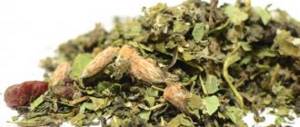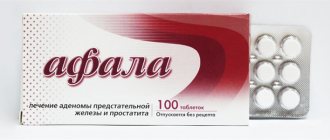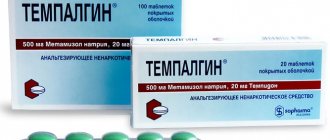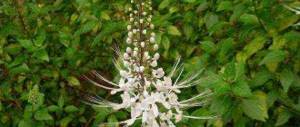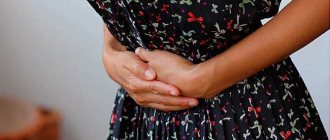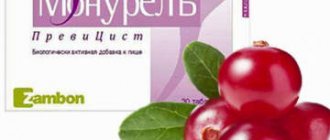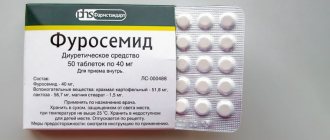Kidney collection is very popular among the population. It is especially used if there are problems with the genitourinary system or organs. For treatment, a herbal composition is used, aimed at accelerating diuretic processes and combating antispasmodic and inflammatory phenomena in the body. For example, to eliminate kidney stones, a composition of herbs such as rose hips and bearberry leaves is used: this combination acts as an antiseptic. In this article we will look at all the features of such a medicine as kidney collection.
Indications for use of kidney tea
This type of healing tea (a separate article is devoted to its beneficial properties and composition) can be taken during acute and chronic illness, as well as for preventive purposes.
Indications for use are:
- cystitis and urethritis;
- nephritis and pyelonephritis;
- the presence of sand or stones in the kidneys, gall bladder;
- swelling;
- hypertonic disease;
- atherosclerosis;
- diabetes;
- cholecystitis;
- gout.
When prescribing certain types of kidney tea to patients, the doctor is practically not limited by age - children starting from three years old and elderly patients are treated with this remedy.
These medicinal drugs play an important role in maintaining women's health, especially for expectant mothers, whose body does not always cope with the increased load.
However, recently, experts have begun to prescribe kidney tea to pregnant women with greater caution than before, the reason is the appearance on the pharmaceutical market of dubious drugs that deviate from the established recipe and introduce ingredients that pose a potential threat to women.
We talked in more detail about the use of kidney tea during pregnancy here.
Healing effects on the body
The main purpose of the human urinary system is the timely drainage of excess fluid and waste products through urine.
Kidney herbal teas help to quickly and safely cleanse the kidneys and other organs, as well as reduce excessive stress on them. Most mixtures contain safe and effective herbs that have a gentle and effective effect on the diseased organ.
The healing effects of herbs can lead to the following results:
- The functioning of the renal tubules improves;
- Inflammatory processes are reduced;
- Diuresis improves;
- Urine becomes alkaline;
- The water-salt balance is stabilized;
- Stones and sand in the kidneys are removed;
- The pain syndrome decreases or completely disappears.
↑
https://youtu.be/zx2wInPTtxY
Instructions for use
Most pharmaceutical teas go on sale in filter bags and are prepared according to the general procedure - pour 100 ml of boiling water over them, cover the container with a lid and let the drink brew for about 15 minutes. During this time, press the bag several times with a spoon so that as many healing substances as possible are transferred into liquid. When the infusion is ready, another 100 ml of hot water is poured into it.
"Orthosiphon staminate"
The main property of this medicinal drink is its good diuretic effect. “Orthosiphon” helps fight inflammation, removes acids and toxins from the body, and relieves pain.
Brewed using the common method for kidney teas, Orthosiphon is recommended to be drunk warm, after shaking slightly. As a rule, the daily norm for a patient is 1 glass. Tea is drunk in two doses, half a glass, each time half an hour before meals. Usually the doctor prescribes a course of 2-3 weeks to the patient. It can be extended only after consulting a doctor.
"Urophyton"
This type of tea, which contains birch leaf, bearberry, horsetail, and licorice rhizome, is effective against edema, prevents the formation of sand and kidney stones.
Unlike Orthosiphon, doctors do not prescribe this tea to expectant mothers and young children - Urophyton is allowed to be taken no earlier than 12 years of age.
"Fitonephrol"
This tea with lingonberries (a strong diuretic, actively used in traditional medicine recipes) also has age restrictions - it should not be given to children under 12 years of age. "Fitonephrol" is rarely prescribed to pregnant and lactating women, since it can give a strong allergic effect due to the large number of plant components it contains.
For other patients, Fitonefrol is useful as a remedy that successfully fights harmful bacteria, relieves inflammation, and has a disinfecting effect.
Here's how to prepare a drink from crushed herbal tea: 2 tbsp. pour a glass of water and heat according to the principle of a water bath for half an hour. After this, filter and add boiled water so that the volume of liquid is again equal to 1 glass. This portion will be enough for the patient for a day. Drink warm tea three times a day, 1/3 cup.
"Nefron"
For long-term treatment of kidney diseases, the urological herbal collection “Nefron” is well suited - tea prepared from it can be taken in a course of 1.5-2 months.
The recommended dose for 1 day is 2 glasses. Each requires 1-2 filter bags. Filled with boiling water, they must be infused for at least 0.5 hours and only after that they are ready for consumption. Drink this drink half an hour before meals.
We talked about the benefits and harms of cinnamon tea in this article.
You can find out what oolong (oolong) tea is here.
You can read about how to properly brew rosehip tea here.
"Nephrophyte"
If tea is prepared directly from plant materials purchased at a pharmacy, you need to adhere to the following recommendations: pour 0.5 liters of boiling water with 2 tbsp. collect and, securely wrapped, leave for 1 hour. Drink tea strained, warm, 150 ml at a time, three times a day. It is advisable to take this remedy half an hour before meals.
When using filter bags, the norm is as follows: 2 pieces per 150 ml of liquid. The tea should be infused for ¼ hour and taken in the same way as tea prepared from the herbal mixture.
"Nephrofit" can be prescribed not only to adults, but also to children from 7 years of age. Treatment is often carried out in two courses of 60 days with a break of 1 month.
"Evalar"
The main components of this product are orthosiphon stamen and birch leaves, which provides the drink with a good anti-inflammatory result. And the addition of black currant and mint gives Evalar a pleasant taste and aroma.
The tea is consumed in a course of at least 20 days and, if necessary, the treatment is repeated after 10 days. A drink is prepared from filter bags within 10 minutes, 1 pc. enough for 200 ml of boiling water.
"Zerde"
This drink can be found on sale under the name “Kidney herbal tea”. It does not contain orthosiphon; the main ingredients are oregano, mint, knotweed, and horsetail. “Zerde” is considered one of the safest drinks for treating the urinary organs, so doctors recommend it to those who suffer from chronic diseases and are forced to frequently renew treatment.
Even expectant mothers with certain types of diseases can be prescribed Zerde for 6-8 months - several courses in a row, with breaks between them of 1 week. This tea is also allowed for children, aged 3 to 7 years, they receive 1 tsp twice a day. healing drink.
“Zerde” is sold in filter bags and prepared in the traditional way.
"Shenshitong"
This is Chinese tea, well known in its homeland, but so far used with caution by Russian doctors, and exclusively as part of a complex treatment, for greater effectiveness.
A herbal collection of herbs and inflorescences is being prepared; the presence of a staminate orthosiphon in it is mandatory. “Shenshitong” affects the chemical composition of urine, so that salts do not accumulate in the patient’s kidneys.
If you are diagnosed with pyelonephritis or urethritis, drink 1 glass of tea twice a day (1 packet per 250 ml of water). In case of acute form of the disease, “Shenshitong” is drunk for a week, in case of chronic form – 2 weeks.
If tea is used in the treatment of urolithiasis, the scheme for its use is as follows: 200 ml of the drink (prepared from 1 bag) every 12 hours.
Patients' opinions
I brew one packet for every day. I take half a glass twice. To brew, you need half a glass of boiled water; it is best to leave for about fifteen minutes. The taste is bitter, but not unpleasant.
Kidney collection is a complex of medicinal herbs that help cope with various pathologies of the urinary system. Unlike pharmaceutical drugs, it has a gentler effect on the body, gradually eliminating unpleasant symptoms.
Which kidney collection is better to choose?
There is no clear answer to this question. The best tea for a particular patient will be the one that will cope with his or her problems faster and without negative consequences. Therefore, the responsibility of choice, as a rule, falls on the doctor - he must take into account the peculiarities of the course of the disease in his patient, and keep in mind possible contraindications.
When purchasing a medicinal collection, the patient himself must be wary of counterfeits, so he should only purchase tea from pharmacy chains and specialized retail outlets and inquire about the composition of the herbal collection.
For example, diuretics should contain leaves of orthosiphon, birch or lingonberry, horsetail, bearberry, and other herbs and roots, which are best known in advance. If we talk about the chemical composition, then you should make sure that the herbal medicine contains tannins, essential oils, and potassium salts.
Those who choose kidney tea with the goal of losing excess weight (for example, using the fasting system proposed by Rudolf Breuss, or using Care Health tea) have different guidelines: the drink should improve metabolism, effectively rid the body of toxins, and act very fast. The main components for such teas are horsetail, nettle, St. John's wort, and knotweed.
Preventing kidney problems
Prevention is the first step to health. In order not to suffer from kidney pathologies, the following conditions are necessary:
- Avoiding hypothermia (especially the lower body).
- Drinking enough fluid (2 liters per day). Lack of water in the body is harmful and can cause problems with the urinary system.
- Timely treatment of genitourinary infections and prostate diseases.
- Avoiding colds.
- Minimum use of salt and other spicy seasonings.
- Physical exercise. Moderate physical activity is good for the immune system and increases overall resistance to illness. (This point is especially relevant for children and adolescents).
- Quitting bad habits (risk group - men).
For people with chronic diseases (kidney failure), it is very useful to visit specialized sanatoriums. A good spa holiday is the best preventative method for recurrent manifestations.
Recipes for treating diseases
If you have the opportunity to purchase high-quality plant materials, you can make an analogue of the healing collection yourself.
For cystitis and kidney stones
Recipe for patients with cystitis: take 3 g of dry crushed orthosiphon leaves for 200 ml of boiling water, the tea should be infused for 20 minutes, after which it is filtered and a little warm water is added so that the volume of the drink is 200 ml. This will be a daily portion, which should be divided into 2 doses.
For urolithiasis, kidney tea is used as an aid to the main procedure - crushing stones. Take (in equal parts) 2 types of dry plant materials - horsetail and eryngium flat-leaved: for 1 glass of boiling water - 2 tbsp. collection You need to infuse the tea for 3 hours, putting the container in a dark place, after which the tea is filtered.
The second recipe is relevant at the stage of removing sand from the body. Here (and again in equal parts) 4 ingredients are used: bearberry, oat straw, corn silk and bean shells. Take 2 cups of boiling water, 4 tbsp of herbal tea. Duration of infusion - 1 hour.
For pyelonephritis
Patients with this diagnosis are usually treated with antibiotics. Herbal therapy helps consolidate the achieved results and restore normal functioning of the body.
Orthosiphon decoction is prepared from 1 dessert spoon of dried crushed leaves and 200 ml of boiling water. The container with the drink is kept in a water bath for ¼ hour. The drink is drunk warm (40°C is the best temperature for this tea) 2 times a day, ½ cup.
For the chronic form of the disease, a decoction of flax seeds helps. They are boiled for 2-3 minutes, and then infused for 1 hour.
For glomerulonephritis
A decoction for patients with this diagnosis is prepared from 2 tbsp. l. crushed orthosiphon leaves and 400 ml of boiling water. The drink is brewed in a thermos overnight. Then it is filtered and drunk three times a day, 150 ml.
Glomerulonephritis is usually accompanied by edema. You can cope with them by preparing an infusion of flax seeds (4 parts), birch leaves and field steel root (3 parts each). The tea is infused for at least two hours. The daily intake of the drink is 1 glass, which should be drunk 3 times.
Iced coffee - what is it? You will find the answer in this material.
Recipes for making Indian masala tea can be found at this link.
Properties and benefits of the product
A specific herbal remedy is a unique invention of mankind, used for the treatment of acute ailments, chronic pathologies, even as a preventive therapy for diseases of the genitourinary system. The medicinal product has a wide spectrum of action. Thanks to the wide range, everyone will choose the ideal kidney collection that will have the most positive therapeutic effect.
What are the benefits of kidney supplements:
- Almost all types of remedies relieve swelling and spasm not only from the kidneys, but also from the channels of the excretory system. Thanks to this effect, the patient feels relief even after the first use. Anti-inflammatory properties stop the pathological process, facilitate urination, relieving unpleasant symptoms;
- Kidney preparations have a diuretic effect, helping to remove toxins, kidney stones, and sand from the patient’s excretory system. This action helps to get rid of unnecessary substances naturally, without resorting to medications that include chemicals that cause a lot of side effects.
Prices in pharmacies: how much does it cost?
You can buy kidney tea not only in pharmacies, but also in chain stores of eco-products (for example, in St. Petersburg from and Chinese).
Prices for different types of goods differ significantly. One of the most budget-friendly teas is “Orthosiphon stamen” - for a package of 20 filter bags you have to pay an average of 60 to 100 rubles. The price of 30 bags of herbal tea “Siberian Health” is 165 rubles, and “Monastic tea No. 7” (100-gram package) will cost 200 rubles.
Kidney tea from “Happiness” costs 2,600 rubles. per package.
Who shouldn't drink it?
Restrictions appear if the patient does not fit into the “age limits”. It is necessary to take into account that for different teas these “frames” can differ significantly : in one case, taking a healing drink is allowed from three years, in another – from seven, in a third – from twelve.
The same is true in the case of expectant mothers: the doctor, of course, will prescribe the woman the tea that is beneficial for her condition, but there are many herbal teas that are contraindicated for pregnant patients.
You should not drink kidney tea if you are hypersensitive to at least one of its ingredients.
Other contraindications: gastritis and stomach ulcers, hypotension, heart disease.
It is forbidden to take medicinal tea at the same time as alcohol.
Reviews from doctors
Vitaly S., urologist: “More often than other kidney teas, I recommend Orthosiphon stamen to patients suffering from cystitis (including chronic). Over my long practice, I have come to the conclusion that the drug helps patients overcome their illness quite quickly, on average in 2 weeks.”
Anna R., urologist: “Today patients often ask me about new remedies that they learned about from friends or on the Internet. For example, many are interested in drugs with semi-hollow (or semi-hollow, the name sounds different when translated into Russian). The plant is grown in Ceylon, and more recently in Russia, even in summer cottages. I was convinced from my patients that yes, this remedy helps, for example, with urolithiasis. However, I always warn: taking herbal remedies must be preceded by a competent medical diagnosis, studying the composition and size of the stones, otherwise self-medication may cause harm to health instead of benefit.”
Daria I., pediatric urologist: “Orthosiphon tea is very helpful in treating young patients.” It has virtually no contraindications. I use this tea as part of complex therapy; it promotes faster recovery for children who have problems with the urinary system.”
